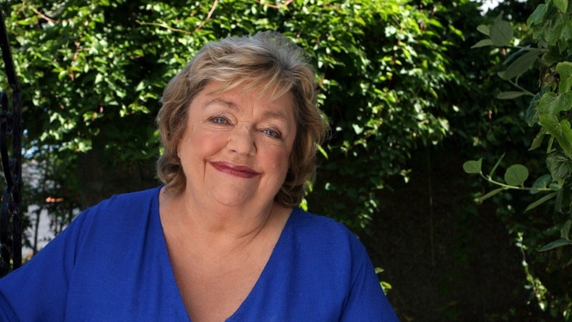This new collection gathers 41 stories from Maeve Binchy whose fiction continues to move and inspire readers of all ages, three years after her passing in 2012.
The late lamented author had a kind of natural, conversational tact as a story-teller and she does not build a dense fortress of detail into her scenarios. Even when they are taking place in a recognisable Ireland, there are few mentions of specific locations and street names. So there is a kind of universality about the tales.
The opening story is Georgia Hall, whose eponymous heroine, a socialite and art expert, seems hugely self-confident, born with the looks and the intelligence to boot. Margaret or Moggie, her contemporary from college days, has resigned herself to feelings of inferiority. Georgia studied art, Margaret is an economics graduate.There is some residual bitterness because, as Moggie sees it, Georgia once stole her boyfriend.
But things are not as they seem, as she learns, when Moggie’s current partner Bob approaches Georgia to help with the foundation in Africa, a project which Moggie and Bob are currently working on. Through Bob, Moggie discovers that Georgia is in fact riddled with some insecurities, and has been too bound up with her image. The story proves the point that the more one climbs the celebrity rock-face, the more the distance ahead seems, and indeed the sense of greater loss should you suddenly fall.
The Afterthought is a brilliant story about marital infidelity, which pivots around the innocent yet knowing commentary of nine-year old Eoin, the erring wife’s youngest son. Such is Binchy’s dexterity that with a few quick brush strokes we utterly see the lonely young lad talking to the adults in the garden, feeling his way through the maze of his parents’ misadventures.

The Mirror is a charming story about social-climbing, trying to impress the neighbours and the inevitable disappointment. So wrapped up in their own lives are a number of dinner guests, that they fail to notice the antique mirror acquired by the ambitious woman of the house. In fact, the guests spend much of the meal studying or ogling their own reflections in it, without actually seeing it.
The novella-like, Dusty’s Winter, is a family saga which explores the relationship between Dusty - the only girl and youngest in a family of three - and the baby daughter, named Jean Marie, who is born to her 18-year old brother Daniel. Daniel cannot deal with being a new father, and at 21 accepts a scholarship to study in America. The daughter is reared by the girl’s mother and her new partner, but the story chiefly deals with the ins and outs of Dusty and Jean Marie’s relationship.
At 35 pages, Dusty’s Winter seemed a little too long to this reviewer, but not because of unnecessary padding, it just didn't engage sufficiently. One suspects that Maeve might have considered this as a potential novel at some point. Perhaps filled out in greater light and shading it might have worked better.
Maeve’s husband, Gordon Snell writes a brief, affectionate introduction to the collection. He conjures a quick sketch of his late wife, which should be mild consolation to those of us humble scribes whose careful labours have been utterly lost on occasion.
“She plunged at the keyboard, like a swimmer into the sea, typing at breakneck speed, and without pausing to correct any errors in punctuation or spelling. If the devilish machine suddenly disappeared a page or two of text, she didn’t spend any time on technical fiddling. She said it was quicker to write the whole section again, there and then.”
Aside from the hardback edition, A Few of the Girls is available as an eBook, as an audio download and CD.
Paddy Kehoe













